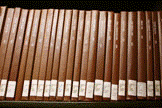Anthropology, Department of

Department of Anthropology: Theses and Student Research
First Advisor
LuAnn Wandsnider
Date of this Version
12-2012
Document Type
Thesis
Citation
A thesis presented to the faculty of the Graduate College at the University of Nebraska in partial fulfillment of requirements for the degree of Master of Arts
Major: Anthropology
Under the supervision of Professor LuAnn Wandsnider
Lincoln, Nebraska, December 2012
Abstract
At the close of the nineteenth-century, Omaha, Nebraska hosted the Trans-Mississippi and International Exposition of 1898. Despite financial depression, drought, and war, the city chose to allocate its limited financial, time, and energy resources to the Exposition effort with no guarantee of success and little potential for profit. This thesis aims to make sense of this seemingly wasteful or irrational event by exploring its possible function as a costly social signal of Omaha’s qualities to potential residents, businesses, and city partners. Utilizing data from historical, geophysical, and demographic resources, this thesis assesses the Exposition as a costly signal and the degree to which this signal proved successful. In doing so, a greater understanding of the function of world’s fairs in general, and the potential of costly signaling in historical archaeology research will be determined.
Adviser: LuAnn Wandsnider


Comments
Copyright 2012, Courtney L. Cope Ziska